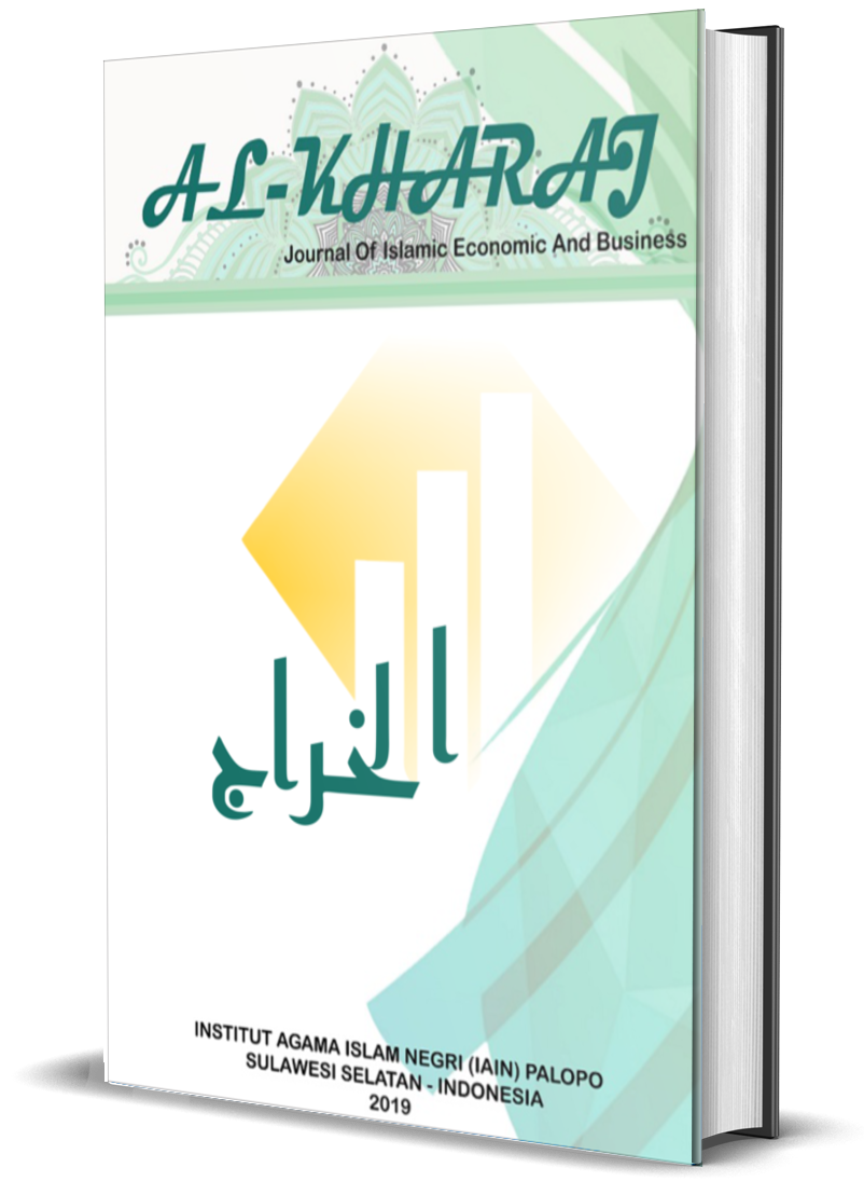The Influence of Education and Training on Employee Performance Secretariat of the Regional People's Representative Council (DPRD) Barru Regency 2021 - 2024
DOI:
https://doi.org/10.24256/kharaj.v7i3.7739Keywords:
Education, Training and Employee Performance.Abstract
The aim of this study is to determine the influence of education and training on the performance of employees of the Secretariat of the Regional People's Representative Council (DPRD) of Barru Regency.
The analysis method used in this study is multiple linear regression analysis, T test, F test, correlation analysis and determination. The results of the study indicate that the hypothesis of Education on Employee Performance is accepted on the basis of the calculated T value of 2.516 which is greater than the T table value of 1.7340. In addition, the hypothesis of Training on Employee Performance is accepted on the basis of the calculated T value of 2.628 which is greater than the T table value of 1.7340. The results of the F test calculation show that Education and Training have a simultaneous effect on Employee Performance on the basis of the calculated F value of 14.789 which is greater than the F table value of 3.55. Then the results of the correlation coefficient test show that Education and Training on employee performance have a strong relationship, then based on the results of the determination test it shows that the contribution of Education and Training is 58% to the Employee Performance variable.
References
Armawansyah, Rizal, Heru Susilo and M Djudi Mukzam, 2016. The Influence of Education and
Training on Employee Work Performance (Study on Employees of PT. PLN (Persero) East Java Distribution Malang Area).Journal of Business Administration (JAB) | Vol. 37 No. 2 August 2016.
Khaerunnisa Lusi, et al. (2023). The Influence of Education and Training on Employee Performance at the General Election Commission of Bombana Regency. Profit: Journal of Management, Business and Accounting: Vol. 2 No. 4 November 2023 e-ISSN: 2963-5292 - p-ISSN: 2963-4989, Pages 263-276.
Mangkunegara, AP 2013. Corporate Human Resource Management. Rosdakarya Youth, Bandung.
Noviyanti Rianti Putri, Sri Langgeng Ratnasari (2019). The Influence of Education Level, Training, and Career Development on Employee Performance at PT Asuransi Takaful Batam. Journal of Accounting, Economics, and Business Management, Vol. 7, No. 1
Pakpahan, Edi Saputra. Siswidiyanto and Sukanto, 2012. The Influence of Education and Training on Employee Performance (A Study at the Regional Civil Service Agency of Malang City). Journal of Public Administration (JAP), Vol. 2, No. 1.
Ruspratiwi, et al. (2024). The Influence of Education and Training on Improving Employee Performance at the Regional Financial Management Agency Office of Enrekang Regency. GEMILANG: Journal of Management and Accounting Vol.4, No.1 January 2024 e-ISSN: 2962-3987; p-ISSN: 2962-4428, Pages 200-213.
Sugiyono. 2017. Research and Development Methods. Bandung: Alfabeta.
Law of the Republic of Indonesia Number 20 of 2003 concerning the National Education System. Jakarta, Ministry of Education and Culture of the Republic of Indonesia.
Mujahidin, Rahmadani, N., & Putri, Q. A. R. (2024). Analysis of the Influence of Religiosity Values In Reducing Consumptive Behavior in Indonesian Muslim Consumers. Amwaluna: Jurnal Ekonomi dan Keuangan Syariah, 8(2), 253-274.
Wulandari, S., Irfan, A., Zakaria, N. B., & Mujahidin. (2024). Survey Study on Fraud Prevention Disclosure Measurement at State Islamic Universities in Indonesia. IQTISHODUNA: Jurnal Ekonomi Islam, 13(1), 327–348. https://doi.org/10.54471/iqtishoduna.v13i1.2305
Sapsuha, M. U., Alwi, Z., Sakka, A. R., & Al-Ayyubi, M. S. (2024). Review of Gold Trading Practices on Credit (non-Cash) Based on Hadith. Al-Kharaj: Journal of Islamic Economic and Business, 6(3).
Majid, N. H. A., Omar, A. M., & Busry, L. H., Mujahidin Reviving Waqf In Higher Education Institutions: A Comparative Review Of Selected Countries. European Proceedings of Social and Behavioural Sciences.
Ishak, I., Putri, Q. A. R., & Sarijuddin, P. (2024). Halal Product Assurance at Traditional Markets in Luwu Raya Based on Halal Supply Chain Traceability. Amwaluna: Jurnal Ekonomi dan Keuangan Syariah, 8(2), 224-240.
K, A. ., Astuti, A. R. T. ., & ., Mujahidin. (2024). The Impact of Word of Mouth and Customer Satisfaction on Purchase Decisions: The Role of Maslahah as an Intervening Variable in the Cosmetic Products Industry in Indonesia. Journal of Ecohumanism, 3(7), 1525–1540. https://doi.org/10.62754/joe.v3i7.4307
Arno, A., & Mujahidin, M. (2024). Enhancing Zakat Management: The Role of Monitoring and Evaluation in the Amil Zakat Agency. Jurnal Economia, 20(3), 397-418. doi:https://doi.org/10.21831/economia.v20i3.53521
Amiruddin, R., Abdullah, M. R., & Noor Bakri, A. (2025). The Influence of e-WOM, Fashion Trends, and Income on the Consumption Style of the Muslim Community in Palopo City: A Quantitative Analysis. El-Qist: Journal of Islamic Economics and Business (JIEB), 14(2), 185–205. https://doi.org/10.15642/elqist.2024.14.2.185-204
Meilany, R., Fasiha, F., & Moalla, M. (2025). The Role of Interest as a Mediator in The Relationship of Knowledge and Islamic Financial Inclusion to The Loyalty Costumers of Non-Muslim. IKONOMIKA, 10(1), 1-24.
Fiqran, M., Mujahidin, M., Bakri, A. N., & Abdulrahman, A. J. A. (2024). Motivation for Waqf in Millennials and Generation Z: Highlighting Religiosity, Literacy and Accessibility. IKONOMIKA, 9(2), 309-332.
Putri, Q. A. R., Fasiha, F., & Rasbi, M. (2024). Affiliate marketing and intention to adopt mudarabah: The mediating role of trust in Islamic financial decision-making. JEMA: Jurnal Ilmiah Bidang Akuntansi Dan Manajemen, 21(2), 337–362. https://doi.org/10.31106/jema.v21i2.23381
Downloads
Published
How to Cite
Issue
Section
Citation Check
License
Copyright (c) 2025 Hendrayani, Syahrir, Edi Jusriadi

This work is licensed under a Creative Commons Attribution-ShareAlike 4.0 International License.
Authors retain copyright and grant the journal right of first publication with the work simultaneously licensed under a Creative Commons Attribution-ShareAlike 4.0 International License. In line with the license, authors are allowed to share and adapt the material. In addition, the material must be given appropriate credit, provided with a link to the license, and indicated if changes were made. If authors remix, transform or build upon the material, authors must distribute their contributions under the same license as the original.









